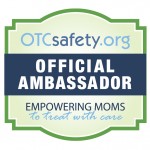 April is Autism Awareness Month. This month has been established in the United States to recognize and shed light on all the children, adults, and their families living with autism today. Autism has long been misunderstood, and still is to this day. Even as a pediatrician, this topic is difficult to tackle.
April is Autism Awareness Month. This month has been established in the United States to recognize and shed light on all the children, adults, and their families living with autism today. Autism has long been misunderstood, and still is to this day. Even as a pediatrician, this topic is difficult to tackle. For one, autism is considered a spectrum disorder. Meaning, no one person diagnosed with autism will present the same way. Children’s symptoms range from very mild to very severe. In addition, we don’t really know what causes autism. We do know that there is a strong genetic component and that there are likely multiple environmental factors that also play a role.
So, while there are still a multitude of questions that swirl around autism, what we do know is this: early detection and intervention is key.
In my effort to shed some light on autism, I will share with you some facts about Autism and “red flags” to be aware of and look out for should you be concerned about your child’s development.
Autism Facts:
- 1 in 110 children are affected by autism and the numbers are growing
- 1 in 70 boys will be affected. Boys are 4 times more likely than girls to have autism
- There is no simple, easy “test” for autism; nor is there a cure.
- Autism is considered a developmental disability that can range in severity. Therefore, it is considered a spectrum disorder.
- Autistic children have difficulties in communication, social interactions, and typically display repetitive patterns of behavior.
- Children with autism are often overwhelmed by their environment.
- No two children with autism will look, sound, or present the same way.
- Although there is a strong genetic component, the exact cause of autism remains unknown. Environmental factors and possible triggers are suspected in vulnerable children.
- Early diagnosis and intervention is key to helping children with autism navigate their world and improve their long term quality of life.
Red Flags to be aware of:
If your 18 month old displays any of these red flags, have him assessed and screened for autism.
- Does not respond to his name
- Is slow to develop language skills. For example, no words by 16 months old.
- Does not point or wave bye-bye
- Has language regression. For instance, he used to babble or say a few words, but now does not.
- Throws intense or violent tantrums
- Seems to tune people out.
- Does not reciprocate smiles or show interest in others.
- Has poor eye contact
- Talk to your doctor sooner if you suspect your infant or toddler is not meeting his developmental milestones.
The American Academy of Pediatrics now recommends that all children be screened for autism at 18 months old. This is in addition to routine developmental check ups at each well child visit.
Most of all, listen to your gut and follow your instincts. If you feel something is just “not right” with your child, talk to your pediatrician. You are certainly the expert when it comes to your own child and you will be his best advocate.
I’d like to end this post with words from the moms on the front line. They say it and know it best. I asked three moms of children on the autistic spectrum to share what they want others to know about autism and their children. Here is what they said:
“I think the biggest thing is patience and understanding. For us we would appreciate prayers not stares. It is difficult to communicate with everyone who we come in contact with that our son isn’t acting like a 2 year old throwing a tantrum on purpose. He doesn’t know how to communicate his feelings properly. I would just like people to know that kids with autism can’t help it and that they and their parents want to be treated with respect and dignity just like everyone else does.”
—Melanie (Mom to an adorable 5 year old boy with autism. She also happens to be my son’s amazing kindergarten teacher.)
“Compassion and understanding. I would love parents to know they shouldn’t judge a mom when her kid is having a meltdown at the grocery store. The child may not be an ill-behaved spoiled brat who isn’t getting his way. He may actually be a child with autism who cannot handle the florescent lights in the store or the sounds of the floor-cleaning machine. So instead of passing judgment on the mom, they should either ignore the meltdown or check in with the mom to see if she needs help of any kind. That form of compassion is greatly appreciated!”
—Cheryl (Mom to a beautiful and quirky 7 year old girl with Asperger’s and author of the blog, Little Bit Quirky)
“Autism makes it very difficult to cope with daily life. People with autism are not being loud or covering their ears or running through a room because they cannot behave or need better parenting. They are trying to manage in a world that is overwhelming for them and are doing the best they can to navigate through society each and every day.”
—Jessica (Mom to a beautiful and courageous teenager with autism. She is also author of the blog, Four Plus an Angel. Read her daughter’s words here, in this poignant interview between mom and daughter.)
These moms are truly amazing and more than anything, this month is about educating others about autism and the children affected by it. I hope these moms, dads, and parents everywhere continue to share their stories and shed light on what it’s like to live with autism. As you can see from their words above, what they truly crave is compassion, understanding, and support.
Share your story too. What would you like others to know about autism?
Resources :
Autism Speaks
Healthy Children
American Academy of Pediatrics
Center for Disease Control and Prevention









I think every mom of a newly diagnosed child feels ashamed because we think it is our fault. We wonder if there is something we could have, would have, should have done differently. The truth is we have no control over it.
Amazing post and so very important to help raise awareness about early intervention. Well done.
This is really on my mind today, so seeing your post here is perfect, Melissa! I work with lots of kids who have Aspergers and I just adore their different twist on things. But there is a huge amount of misunderstanding about autism and the spectrum it covers, so I love that this is Autism Awareness Month.
And that interview between Jessica and her autistic daughter was wonderful.
Thank you so much for this post Melissa. I appreciate you sharing our story but also that you are helping to bring more awareness to a disorder that affects more and more families every day.
Great post! A fellow blog friend suggested I Stop by and read this post.
I am a teacher for children with ASD and am doing Autism Awareness posts all month long on my blog. Hope you'll stop by and spread the word!
http://www.barbaramanatee.blogspot.com
Melissa:
Great job–especially all the wonderful quotes. Ahem.
On a more serious note, you rocked it!
Hi Melissa! Saw the comment you left on Kevinmd.com in response to my post there. Great to discover your site! I love the input and experience you've shared through your blog! Outstanding! And it's wonderful to know that I'm not the only one to struggle with the balance of wanting to be there for my family, as well as for my patients. Thanks for your response.
Hi Melissa!
This is great info. Early identification and intervention make a HUGE difference in how much progress a child makes.
I just wanted to add that in case parents are unsure whether or not their child is on the spectrum, one big sign is whether or not their child can use gestures in order to communicate what they want.
Often, a child with severe language delays can present the above symptoms, but inability to use gestures is a big tip off to autism.
Yes! Thank you Rachel, inability to gesture is a huge one. I'm going to add that in
Thank you for sharing this. It seems early intervention can positively influence the progress a child can make. Great read.